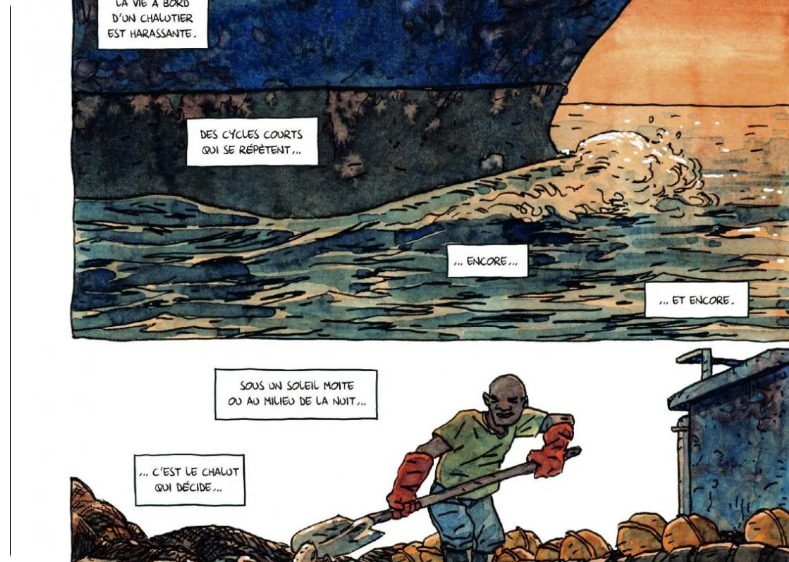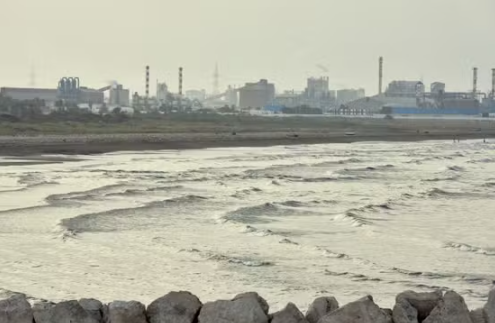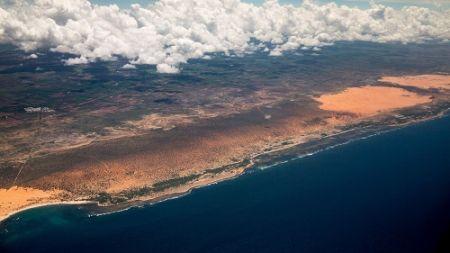After studying finance, I spent a year in the French navy as a watch manager. And in 2020, driven by ecological awareness, I decided to focus solely on protecting the oceans and apply for the Sea Shepherd association. I was taken on a first mission to pilot 55 meter patrol boats and I loved it.
It turns out that when I arrived in the association, I had also just signed with Delcourt for my first comic book “The Interior Journey”. And it was while patrolling with Sea Shepherd that I realized that overfishing and the plundering of the seas were very strong, very visual subjects, totally ignored and that they absolutely had to be told.
“Overfishing in Africa means 17,000 Chinese and European trawlers”
Is West Africa the only area affected by overfishing?
No, obviously. Our comic focuses on West Africa because it is in this area that I was on mission. But, the situation is identical in the Indian Ocean or with the Pacific which is even closer to China, a country which practices a lot of overfishing.
That being said, Africa is a very good example because it is a continent with substantial resources, or at least which were… and which is emblematic of the global situation concerning the exploitation of the oceans.
Do many associations fight against illegal fishing?
Unfortunately, no, very little. There are a few local associations. Greenpeace owns a few boats but their mission is more focused on documentation. On a global level, Sea Shepherd is almost alone. And they only have around ten boats.
Overfishing in Africa means 17,000 Chinese and European trawlers… This is why I also launched an NGO Seastemik which campaigns for a reduction in fish consumption which remains the primary source of destruction of marine life. .
Exactly, at this level, what can the citizen do?
The French are among the biggest consumers of fish in the world. 35 kg per person per year while the European average is 22 kg. It has multiplied by 4 in seventy years.
Twenty years ago, we ate salmon at Christmas because it was expensive and a festive dish. Today, this is no longer the case, we are in a phase of massive industrialization which is destroying ecosystems through overconsumption.
Currently, large fish species, the first victims of overfishing, are disappearing. A scientific study estimates that in 2040, if human pressures are not reduced quickly, our oceans will be populated mainly by jellyfish and small fish.
The consumer must open their eyes and say to themselves that the party is over, that it is no longer possible to eat sushi once a week, that they must turn to the local and learn to consume again. more plants.
“France doesn’t even have a Minister of the Sea”
What is the responsibility of governments?
Huge. Politicians are very good at getting involved and signing numerous declarations. But, then to put in place concrete measures to reduce the impacts, it’s more complicated…
The same thing is happening for fishing as for the climate. In France, fishing generates 6 billion euros of annual turnover. Our country is the second largest maritime power in the world and we don’t even have a Minister of the Sea, only a Secretary of State…
As with all environmental issues, the immediate cost is very high for only future gain. Transforming French fishing would require millions of euros and expose the government to massive protests. Making such decisions requires a lot of political courage and the goal, unfortunately, is above all, without a bad pun, to make as few waves as possible… It is however absolutely necessary to take drastic measures to protect the ocean without which it life on Earth is not possible
Is this dramatic situation inexorable?
No, you just have to leave the ocean alone. It is extremely resilient and the fish produce so many eggs that if you stop fishing in an area, it only takes a few years for life to return.
Scientific studies have shown that protecting marine areas allows biomass to return there very quickly. For example, in 2005, anchovy populations were close to collapse in the Bay of Biscay. For five years, drastic policies to reduce anchovy fishing were applied and the populations regenerated.

“Pillages”, Maxime De Lisle and Renan Coquin, Delcourt, 120p, €26.50
There is a commitment, 30×30, a global campaign aiming to protect 30% of the world’s oceans by 2030 thanks in particular to the establishment of highly protected marine areas, which would restore biodiversity in these areas. .
More than 100 countries have committed to supporting this goal. For my part, I coordinate a project, IPOS for International Panel for Ocean Sustainability, a new program within the United Nations to support and advise heads of state on their decisions concerning the protection of the oceans.
Not only overfishing, but also all types of pollution, plastic, hydrocarbons, etc. The goal is to provide them with all the science available, especially to emerging countries which are not fortunate enough to have the CNRS or powerful research bodies and special ocean advisors.




